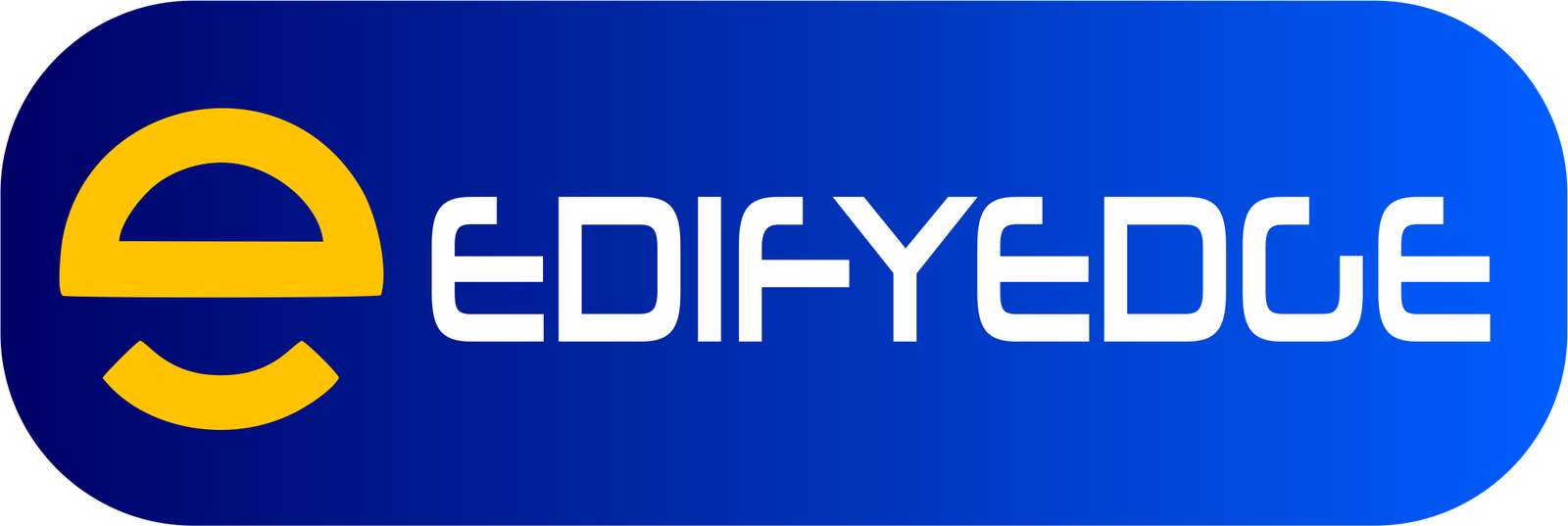What is a Home Equity Loan?
A home equity loan is a type of loan that allows you to borrow money against the equity you’ve built up in your home. Equity is the difference between your home’s current market value and the outstanding balance on your mortgage. Essentially, a home equity loan uses your home as collateral, allowing you to access a portion of your home’s equity in the form of a lump sum of cash.
Home equity loans work by providing you with a single, fixed-rate loan that must be repaid over a set period, typically between 5 and 30 years. Unlike a traditional mortgage, which is used to purchase a property, a home equity loan is a separate loan that uses your existing home as collateral.
The key difference between a home equity loan and other types of loans, such as personal loans or credit cards, is that a home equity loan is secured by your home’s equity. This means that if you fail to make your loan payments, the lender can potentially foreclose on your home. However, because the loan is secured by collateral (your home), home equity loans often have lower interest rates compared to unsecured loans.
Benefits of a Home Equity Loan
Access to Funds: One of the primary advantages of a home equity loan is that it provides homeowners with access to a substantial amount of funds. Since the loan is secured by the equity in your home, lenders are typically willing to offer larger loan amounts compared to unsecured loans or credit cards. This can be particularly useful for homeowners who need to finance major expenses, such as home renovations, debt consolidation, or college tuition.
Potential Tax Benefits: In some cases, the interest paid on a home equity loan may be tax-deductible. If you use the loan proceeds for home improvements or renovations that increase the value of your property, the interest you pay can potentially be deducted from your taxable income. However, it’s essential to consult with a tax professional to understand the specific tax implications and eligibility criteria.
Fixed Interest Rates: Home equity loans typically come with fixed interest rates, which means that your monthly payments will remain consistent throughout the loan term. This predictability can help homeowners better manage their finances and budget accordingly. Fixed interest rates also protect borrowers from the potential impact of rising interest rates, providing stability and peace of mind.
Risks and Downsides
While home equity loans offer a convenient way to access funds, they come with significant risks and downsides that borrowers should carefully consider:
Risk of Foreclosure: Since a home equity loan uses your home as collateral, failing to make payments could result in foreclosure and the loss of your home. This risk is often overlooked, but it’s crucial to understand the severity of defaulting on a home equity loan.
Fees and Closing Costs: Like traditional mortgages, home equity loans often come with various fees and closing costs, such as appraisal fees, origination fees, and title search fees. These costs can add up quickly and increase the overall cost of borrowing.
Impact on Credit Score: Taking out a home equity loan can negatively impact your credit score, at least temporarily. The hard inquiry from the lender and the addition of a new loan to your credit report can cause a slight dip in your credit score initially.
Loss of Home Equity: When you take out a home equity loan, you’re essentially borrowing against the equity you’ve built up in your home. This means that as you pay off the loan, you’re not building additional equity in your home during that time.
Potential for Negative Equity: If property values in your area decline significantly, you could end up owing more on your mortgage and home equity loan than your home is worth, a situation known as negative equity or being “underwater” on your mortgage.
It’s essential to carefully weigh the risks and downsides of a home equity loan against the potential benefits before deciding if it’s the right financial solution for your needs.
Eligibility Requirements
To qualify for a home equity loan, lenders typically consider several factors, including your credit score, income, equity in your home, and debt-to-income ratio.
Credit Score: Most lenders prefer borrowers with good to excellent credit scores, usually above 620 or 640. A higher credit score can help you secure a lower interest rate and better loan terms.
Income: Lenders want to ensure that you have a stable and sufficient income to make the monthly loan payments. They’ll review your employment history, income sources, and overall financial stability.
Equity in Your Home: Home equity is the difference between your home’s current market value and the outstanding balance on your mortgage. Lenders generally require you to have a certain amount of equity, often at least 15% to 20% of your home’s value.
Debt-to-Income Ratio (DTI): This ratio compares your monthly debt obligations (including the potential home equity loan payment) to your gross monthly income. Lenders typically prefer a DTI ratio below 43%, although some may accept higher ratios depending on your overall financial profile.
It’s important to note that eligibility requirements can vary among lenders, so it’s always a good idea to shop around and compare offers from multiple lenders to find the best terms for your situation.
How to Calculate Your Home Equity
To calculate your home equity, you’ll need to know your property’s current market value and the outstanding balance on your mortgage loan(s). The formula for home equity is:
Home Equity = Property Value – Mortgage Balance(s)
Estimate Property Value
The first step is to estimate your home’s current market value. There are a few different ways to do this:
-
Professional Appraisal: Hire a licensed appraiser to provide an official valuation of your property. This is the most accurate but also the most expensive option.
-
Online Valuation Tools: Many real estate websites offer free online home value estimators. These use public data and recent sales in your area to calculate an estimated value. While not as reliable as an appraisal, they can provide a reasonable ballpark figure.
-
Comparative Market Analysis: Look at recent sale prices of comparable homes (similar size, age, condition, location) in your neighborhood. This DIY approach requires some research but can give you a decent estimate.
Outstanding Mortgage Balance
Next, you’ll need to determine the remaining unpaid balance on your mortgage loan(s). This information should be available on your monthly mortgage statements or by contacting your lender directly.
If you have multiple mortgages (e.g., a primary mortgage and a home equity loan), be sure to include the outstanding balances of all loans secured by your home.
Once you have your property’s estimated market value and your total outstanding mortgage balance(s), simply plug those numbers into the home equity formula to calculate your equity stake in the property.
Using a Home Equity Loan
Home equity loans provide access to a lump sum of cash that can be used for a variety of purposes. Some of the most common uses include:
Consolidating Debt
One popular use for home equity loans is consolidating high-interest debt, such as credit card balances or personal loans. By consolidating multiple debts into a single, lower-interest loan, you can potentially save thousands in interest charges and streamline your monthly payments.
Home Improvements
Many homeowners use home equity loans to finance major home renovations or improvements, such as adding a new room, updating the kitchen or bathrooms, or installing energy-efficient windows or appliances. These improvements can increase the value of your home and make it more comfortable and enjoyable to live in.
Education Costs
Home equity loans can also be a way to finance education expenses, such as tuition, room and board, or other costs associated with attending college or pursuing advanced degrees. Using a home equity loan can provide access to funds at a potentially lower interest rate than other types of student loans.
Other Major Expenses
Beyond these common uses, home equity loans can also be used to cover other significant expenses, such as medical bills, weddings, or starting a business. However, it’s important to carefully consider the risks and ensure you have a solid plan for repaying the loan, as your home serves as collateral.
Application Process
Applying for a home equity loan typically involves several steps and requires documentation to prove your eligibility and the value of your home. Here’s an overview of the application process:
The lender will require various documents to verify your income, employment, debts, and assets. This usually includes recent pay stubs, W-2 forms, tax returns, bank statements, and a list of your current debts and monthly payments. Having these documents ready can expedite the process.
An appraisal will be ordered to determine the current market value of your home. The lender wants to ensure that the combined loan balance (existing mortgage plus the new home equity loan) doesn’t exceed a certain percentage of the home’s value, typically around 80-90%.
The underwriting process involves a thorough review of your financial situation, credit history, and the appraisal report. The underwriter assesses the risk of lending to you and ensures that you meet the lender’s guidelines for income, credit score, debt-to-income ratio, and loan-to-value ratio.
If approved, you’ll receive a loan estimate outlining the terms of the loan, including the interest rate, fees, and repayment schedule. Review this document carefully and compare offers from multiple lenders to find the best deal.
Once you accept the loan terms, the lender will prepare the final loan documents for you to sign. At closing, you’ll receive the funds from the home equity loan, which can be used for various purposes, such as home improvements, debt consolidation, or other financial needs.
Home Equity Loan vs. HELOC
A home equity loan and a home equity line of credit (HELOC) are two different ways to access the equity you’ve built up in your home, but they have some key differences.
Home Equity Loan
- Provides a lump sum of cash upfront
- Fixed interest rate for the life of the loan
- Repayment schedule with consistent monthly payments
- Typically used for large, one-time expenses like home renovations or debt consolidation
- Easier to budget for with fixed monthly payments
HELOC
- Functions like a credit card, with a revolving line of credit
- Variable interest rate that fluctuates with market conditions
- Interest-only payments during the draw period, then fully amortized payments
- Ideal for ongoing expenses or projects with varying costs
- More flexibility in accessing funds as needed, but less predictable payments
Pros and Cons
Home Equity Loan Pros:
- Fixed interest rate provides stability and predictability
- Consistent monthly payments make budgeting easier
- Typically lower interest rates than credit cards or personal loans
Home Equity Loan Cons:
- Lump sum may lead to overspending or temptation to take on too much debt
- Inflexible repayment schedule, with no option to re-borrow paid amounts
HELOC Pros:
- Access to funds as needed, without having to take a lump sum upfront
- Ability to re-borrow paid amounts during the draw period
- Potential tax deductions on interest paid (consult a tax professional)
HELOC Cons:
- Variable interest rates can increase over time, making payments less predictable
- Minimum payments may only cover interest, leading to slower equity buildup
- Potential for overspending or misusing the line of credit
Ultimately, the choice between a home equity loan and a HELOC depends on your specific financial situation, goals, and comfort level with fixed or variable payments.
Refinancing a Home Equity Loan
Refinancing a home equity loan can be a smart financial move in certain situations. The primary reasons to consider refinancing include securing a lower interest rate, changing the loan terms, or tapping into additional equity in your home.
When to Refinance a Home Equity Loan
The ideal time to refinance a home equity loan is when interest rates have dropped significantly since you originally took out the loan. Even a reduction of 1-2 percentage points can result in substantial savings over the life of the loan. Additionally, if your credit score has improved or your home’s value has increased, you may qualify for better terms.
Another scenario where refinancing makes sense is if your financial situation has changed, and you need to adjust the loan’s repayment period. For instance, you may want to extend the term to reduce your monthly payments or shorten the term to pay off the loan faster.
Benefits of Refinancing
The primary benefit of refinancing a home equity loan is the potential to save money. By securing a lower interest rate, you can reduce the overall cost of borrowing, which can translate into thousands of dollars in savings over time. Additionally, refinancing allows you to restructure the loan terms to better fit your current financial situation.
Refinancing can also provide an opportunity to consolidate multiple loans or debts into a single payment, potentially simplifying your finances and reducing overall interest costs.
The Refinancing Process
The process of refinancing a home equity loan is similar to the initial application process. You’ll need to gather financial documents, such as tax returns, pay stubs, and bank statements, and submit them along with a new loan application.
The lender will then order a new appraisal to determine the current value of your home and assess your eligibility for the refinance based on factors like your credit score, income, and existing debt obligations.
If approved, you’ll proceed with closing on the new loan, which will be used to pay off the existing home equity loan. It’s important to factor in closing costs, which can include appraisal fees, origination fees, and other expenses.
Tips for Managing a Home Equity Loan
Budgeting is crucial when taking out a home equity loan. Since the loan is secured by your home’s equity, it’s essential to have a solid repayment plan to avoid defaulting and potentially losing your property. Create a detailed budget that accounts for the monthly loan payments, along with your other financial obligations and living expenses.
Stick to a consistent payment schedule to ensure you make your home equity loan payments on time each month. Late or missed payments can negatively impact your credit score and potentially lead to penalties or default. Consider setting up automatic payments or payment reminders to stay on track.
Regularly monitor the value of your home, as it serves as collateral for the home equity loan. Significant drops in your home’s value could reduce your available equity, potentially putting you at risk of owing more than your home is worth (negative equity). Keep an eye on local real estate market trends and consider speaking with a real estate professional if you have concerns about your home’s value.
Avoid taking on additional debt or making large purchases that could strain your ability to repay the home equity loans. Maintain a disciplined approach to spending and prioritize paying off the loans according to the agreed-upon terms.
Finally, review your home equity loans agreement periodically to ensure you understand the terms, interest rate, and any potential penalties or fees. Staying informed and proactive can help you effectively manage your home equity loans and protect your financial well-being.



